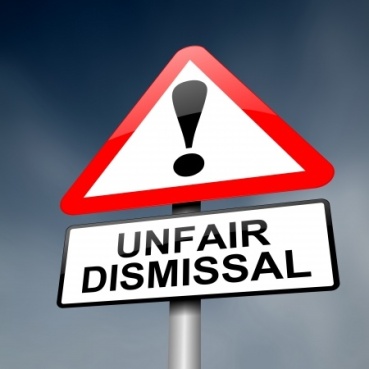All Barbadians have collided with discrimination in one form or another whether as one who discriminates, as a victim of discrimination or as a warrior against such practices. In Barbados both overt and covert discrimination is expected, based on the colour of one’s skin, the texture of one’s hair and the address at which one lives.
New legislation on discrimination
Barbados’ strongest piece of legislation concerning discrimination is its Constitution which in effect prohibits the Government from discriminating against its Citizens.[1] The Parliament of Barbados now has before it a proposed piece of legislation called the Employment (Prevention from Discrimination) Bill, 2020 which proposes to address discrimination in the public and private sector. The mischief which the legislation seeks to cure is clear.
Employment discrimination
The Bill sets out that its objective is to prevent discrimination against individuals in terms of employment. One should note therefore that the Bill is limited to the employer: employee relationship and does not extend to other circumstances of discrimination. The Bill defines discrimination and then sets out exceptional situations where discrimination would not amount to a breach of the law. The proposed legislation includes a requirement that employers prepare and implement an anti-discrimination policy. It would also provide protection for employees who make complaints and allow representative bodies to make applications on behalf of aggrieved persons.
Basis of discrimination
The usual premises on which discrimination is traditionally founded are included in the Bill – such as colour, creed, sex or sexual orientation. There are some others which are not as familiar such as discrimination based on domestic partnership status. This status is defined. A domestic partnership includes two people who are at least 18 years old who are in a genuine domestic relationship. It does not include a married couple or a person who looks after another for a fee. Does it therefore include the relationship of grandmother and grandson or grand daughter for example.
Actions of Employers and Employment Agencies
The Bill seeks to prevent employers and employment agencies from discriminating against individuals in terms of job creation and recruitment. It also addresses discrimination in the actual workplace. The Bill prohibits discrimination through actions based on conditions of employment, the provision of facilities or services, restrictions on access to opportunities for promotion, transfer, training or other benefits.
The proposed legislation identifies particularly medical testing which is prohibited as a precondition for employment or to continue in employment.
Employer required to make adjustments
The Bill however goes further and requires the employer to make adjustments in its operations to avoid discrimination based on creed, sex, sexual orientation, pregnancy, maternity, family responsibility, medical condition or disability.
The adjustments which the employer could be required to make might be seen as rather onerous. They include allocating some of the duties of the employee to another person; altering the hours of work of the employee; providing the employee with alternative employment; assigning the employee to a different place of work; acquiring or modifying equipment for the use of the employee; making adjustments to premises to be used by the employee; or providing a reader or interpreter to the employee.
Some may view this proposed legislation as making the environment more difficult for employers to offer individuals long term employment and helping to create a preference for hiring independent contractors.
Exceptions to discrimination and making adjustments
Bearing such sentiments in mind there are some exceptions as to what amounts to discrimination and there are exceptions with respect to making adjustments. These exceptions include, for example, situations where there is a genuine requirement for qualifications, where an individual of a particular sex is needed to preserve privacy or decency, and where to make adjustments would cause considerable hardship. There is also an interesting provision which allows discrimination for a time where it seeks to create equality.
Exceptions may also be found in an individual qualifying for charitable causes, insurance, sports, enforcement of legal orders and the performing arts.
Application to Tribunal for compensation
Where there is an allegation of discrimination an application can be made to the Employment Rights Tribunal. Applications can be made with respect to discrimination by employers as well as fellow employees.
The Tribunal can make a number of orders including compensation and measures to address the discrimination in the workplace.
[1] See Section 23 of the Constitution of Barbados.


 The deceased, Albert Selby, died without leaving a will and thus his estate is to be dealt with according to the Succession Act and the rules of intestacy which give priority to the deceased’s spouse, children then parents then siblings then nephews and nieces. The deceased was divorced, had no children and his parents died before him. The parties in the Albert Anthony Peter Selby v Katrina Smith [unreported] C.A. B’dos Civil Appeal No 14 of 2010; 2017-02-14 case are the brother of the deceased man and an unmarried woman with whom the deceased was cohabiting up until his death.
The deceased, Albert Selby, died without leaving a will and thus his estate is to be dealt with according to the Succession Act and the rules of intestacy which give priority to the deceased’s spouse, children then parents then siblings then nephews and nieces. The deceased was divorced, had no children and his parents died before him. The parties in the Albert Anthony Peter Selby v Katrina Smith [unreported] C.A. B’dos Civil Appeal No 14 of 2010; 2017-02-14 case are the brother of the deceased man and an unmarried woman with whom the deceased was cohabiting up until his death. What are personal injuries? Yes, you guessed it – injuries to your person! To put it in a legal sense, personal injury is harm, pain or suffering to your body, mind or emotions. It does not include damage to property.
What are personal injuries? Yes, you guessed it – injuries to your person! To put it in a legal sense, personal injury is harm, pain or suffering to your body, mind or emotions. It does not include damage to property.

 The Employment Rights Act (“the Act”) gives an employee who has been continuously employed for at least one year, the right not to be unfairly dismissed. However, the Act also gives an employer the right to dismiss an employee for certain reasons under Section 29 of the Act or for some other substantial reason of a nature such as to justify the dismissal of the employee. Section 29 allows for the dismissal of an employee for reasons relating to the capability of the employee to do the work he was employed to do, the conduct of the employee or where the employee was redundant but subject to Section 31.
The Employment Rights Act (“the Act”) gives an employee who has been continuously employed for at least one year, the right not to be unfairly dismissed. However, the Act also gives an employer the right to dismiss an employee for certain reasons under Section 29 of the Act or for some other substantial reason of a nature such as to justify the dismissal of the employee. Section 29 allows for the dismissal of an employee for reasons relating to the capability of the employee to do the work he was employed to do, the conduct of the employee or where the employee was redundant but subject to Section 31. In a preceding article we spoke about Bail in Barbados generally, with particular focus on the Barbadian Bail Act. If you read that article entitled ‘Bail in Barbados- Did You Know?’ you may recall that the Court has a discretion to grant or refuse to grant a person bail and in exercising this discretion the Court may consider certain factors set out by the Bail Act. For some time, Barbadians have been reacting to the Court’s granting of bail to persons accused of certain types of offences. Of particular interest to Barbadians is the Court’s granting of Bail to persons accused of murder. We will therefore briefly discuss whether a person accused of murder should be granted bail.
In a preceding article we spoke about Bail in Barbados generally, with particular focus on the Barbadian Bail Act. If you read that article entitled ‘Bail in Barbados- Did You Know?’ you may recall that the Court has a discretion to grant or refuse to grant a person bail and in exercising this discretion the Court may consider certain factors set out by the Bail Act. For some time, Barbadians have been reacting to the Court’s granting of bail to persons accused of certain types of offences. Of particular interest to Barbadians is the Court’s granting of Bail to persons accused of murder. We will therefore briefly discuss whether a person accused of murder should be granted bail.